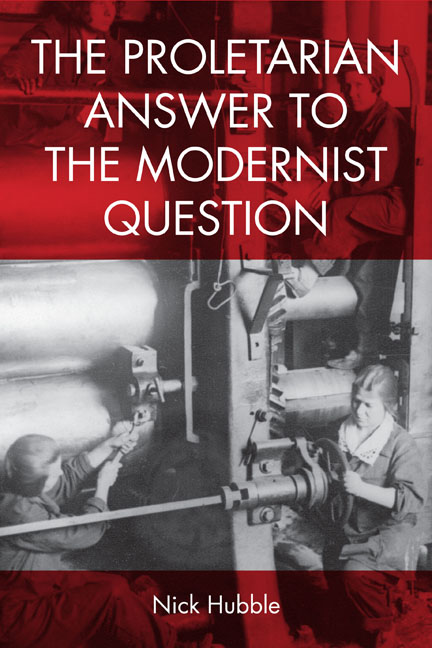Book contents
- Frontmatter
- Contents
- Acknowledgements
- Introduction
- 1 ‘Her Heritage Was that Tragic Optimism’: Edwardian Pastoral
- 2 ‘The Common Life’: Women and Men after the General Strike
- 3 ‘She Had Finished with Men Forever’: Lewis Grassic Gibbon's Grey Granite
- 4 ‘The Raw Material of History’: John Sommerfield's May Day
- 5 ‘None of That “My Good Woman” Stuff’: Outsider Observations
- Conclusion
- Bibliography
- Index
Introduction
Published online by Cambridge University Press: 23 June 2018
- Frontmatter
- Contents
- Acknowledgements
- Introduction
- 1 ‘Her Heritage Was that Tragic Optimism’: Edwardian Pastoral
- 2 ‘The Common Life’: Women and Men after the General Strike
- 3 ‘She Had Finished with Men Forever’: Lewis Grassic Gibbon's Grey Granite
- 4 ‘The Raw Material of History’: John Sommerfield's May Day
- 5 ‘None of That “My Good Woman” Stuff’: Outsider Observations
- Conclusion
- Bibliography
- Index
Summary
Proletarian literature
In Crisis and Criticism, first published in 1937, Alick West identified the question facing modernist writers in the interwar period: ‘When I do not know any longer who are the “we” to whom I belong, I do not know any longer who “I” am either’ (West 1975: 19). This book will argue that much British proletarian literature of the 1930s may be seen as a response to this ‘modernist question’ of the relationship between the ‘I’ and the ‘we’ and took the form, as suggested by West, of an expansion of modernist techniques and scope rather than a rejection of them. In applying his diagnosis specifically to T. S. Eliot's The Waste Land (1922) at the beginning of his book, West was identifying what we might now term ‘high modernism’ as the symptom of the crisis rather than the solution. The implication is that work such as Eliot's reflected the collapse of relatively stable nineteenthcentury conceptions of the relationship between the individual and society amongst the ongoing crisis of capitalist relations that led to the First World War and the Russian Revolution without being able to free itself of those relations. West goes on to distinguish James Joyce's Ulysses from this critical judgement by arguing that the significance of its stylistic innovation was that it expressed a new realisation that: ‘the individual's world is not within the four walls that protect money, board and bed. His world is his society’ (West 1975: 117). However, from West's communist perspective, the limitation of Joyce's social world was that it ignored production, and the conflicts surrounding it, and consisted only of ‘numberless acts of consuming, spending, enjoying of things that are already there’ (West 1975: 120–1). The goal of the interwar years, according to this reading, was for writers to resolve the problem of how to relate ‘I’ to ‘we’ byextending the modernist trajectory established in the succession from Eliot to Joyce to represent the widest possible range of intersubjective relationships – incorporating individual, class, gender, societal, colonial, media, and mechanised production relationships – characteristic of the modern mass society which became dominant in the West following the First World War.
- Type
- Chapter
- Information
- The Proletarian Answer to the Modernist Question , pp. 1 - 55Publisher: Edinburgh University PressPrint publication year: 2017



